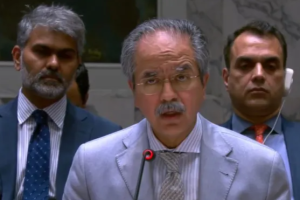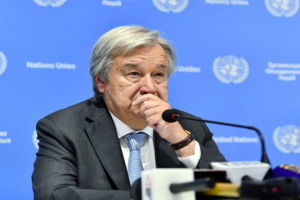US National Security Advisor Robert O”Brien has defended President Donald Trump”s decision to ban Chinese social media applications TikTok and WeChat, saying the country has been “incredibly aggressive” against its neighbouring countries, including India, and that data of Americans has to be protected.
Beginning September 20, the US will ban any provision of service to distribute or maintain WeChat or TikTok mobile applications, constituent code, or application updates through an online mobile application store in the US. The ban cites the applications as prejudicial to sovereignty, integrity and security of the country.
“They (Chinese) do seem pretty adversarial, and they seem pretty aggressive, but not just to the United States, but to countries all over the world. You look at what they”ve done to India and how they”re treating the smaller countries, and with respect to the South China Sea, you see what they”re doing to Taiwan,” US National Security Advisor O”Brien told Fox News in an interview on Friday.
“It”s an extraordinarily concerning situation. That”s why the president has taken tough action. That”s why we”re doing anything we can to protect the American people, whether it”s (to) protect our telecommunications, protect our data, or the president taking a very (former President) Ronald Reagan-approach to defense, with a peace restraint and rebuilding our military,” he said.
“So, we”re doing everything we need to — to make sure that whatever the Chinese decide to do, they understand that they”re not going to change our way of life, and they”re not going to cow or bully the United States,” O’Brien said.
Responding to a question, the security advisor said Trump was looking into other dangerous applications as well, similar to how India expanded its list of banned applications from China.
India had banned 59 Chinese apps, including TikTok, We Chat and UC Browser, on June 29, saying they were prejudicial to sovereignty, integrity and security of the country. The ban was expanded to 224 Chinese apps later.
The ban was imposed in the backdrop of a tense stand-off along the Line of Actual control in eastern Ladakh with Chinese troops.
China has been accused of using these applications to gain tremendous insight into the American people and collect private-personal data.
“There has been some activity regarding TikTok about whether it would sell or reconstitute itself as an American company, comply with the US laws, protect American data here. We”ll have to see how that works out,” he said.
“I think those talks are ongoing, but I think we”re taking a very careful look at Chinese technology, whether it”s Huawei, the telecom front, or TikTok or WeChat on the app front, because we want to make sure that the American people are protected from the Chinese Communist Party,” he said.
“We have a very, very sad history of the Chinese Communist Party hacking everything from Marriott Hotels obtaining the personal information on 150 million Americans, including their passport numbers, hacking a number of our healthcare organisations to get health records of Americans, hacking the Office of Personnel Management to obtain personal information on employees of the US government,” he said.
“So, the Chinese do this routinely within China, and they develop entire profiles on every citizen in China, and then they assign them a social credit score which determines whether they can buy plane tickets, or get a job, or be issued a passport. We think the Chinese may be trying to do that to Americans as well, but at a minimum, assembling dossiers on every single person in America and in other countries. There have been extensive reports over the past week or two about Chinese activities along these lines in both the U.K. and Australia,” he said.
The Trump administration is determined to protect the American people and their data, he said.
“The Chinese have no say when it comes to ordering the American companies around. That”s something every American should be concerned about. The president certainly is, and that”s why he”s taken such strong action against China during his first term,” said the security advisor.

























Add Comment